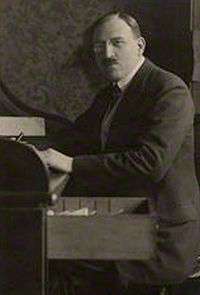Robert Waley Cohen


Sir Robert Waley Cohen, KBE (8 September 1877 - 27 November 1952) was a British industrialist and prominent leader of Anglo-Jewry.
Early life
He came from a prominent Jewish family, being the grandson of Jacob Waley and a cousin of Arthur Waley. (His son was Sir Bernard Waley-Cohen.) He was educated at Clifton College and Emmanuel College, Cambridge.[1]
Career
He joined the Shell Company, 1901 and negotiated its merger with the Royal Dutch Oil Company, 1906. He was a director of the merged company and chief assistant to its managing director.
He was the petroleum adviser to the Army Council during World War I, for which he received a KBE, 1920. He retired from Shell in 1928 but became chairman of the African & Eastern Trade Corporation in 1929. He negotiated a merger with the Niger Company into the United Africa Company, 1929; resigned 1931.
Although he was generally opposed to Zionism, he was the main creator of the Palestine Corporation (a conglomerate with various diverse business interests). He was Vice-Chairman of University College, London and President of the United Synagogue.
He was listed in 'The Black Book' of prominent subjects to be arrested in the case of a successful Nazi invasion of Britain.[2]
Family life and residences
In 1904 Waley Cohen married Alice Violet Beddington, and the couple had two sons and a daughter.
In 1919, Waley Cohen bought Caen Wood Towers in the presitigous Highgate suburb of North London, where the family held numerous social events; Lady Waley Cohen often allowed the gardens to be used for fetes and parties for girls clubs and Boy Scouts, and for raising money for the less fortunate.[3]
Lady Waley Cohen died in 1935, but Sir Robert continued to live at Caen Wood Towers until about 1942 when it was taken over by the RAF and used as the Intelligence Training School.
In 1924 Waley Cohen rented from Earl Fortescue the Somerset estate of Honeymead, Simonsbath, on the high moor in the centre of Exmoor. Honeymead was one of the earliest farmsteads built by John Knight soon after his purchase from the crown of the former largely uncultivated royal forest of Exmoor in 1818.
In 1927 Waley Cohen purchased Honeymead with an estate of 1,745 acres, including Winstitchen Allotment and Exe Cleave Allotment, together with the farmsteads of Pickedstones, Winstitchen and Red Deer (a.k.a. Gallon House)[4] and proceeded to introduce modern farming techniques.
In 1961 Robert's son Bernard Waley-Cohen was created a baronet "of Honeymead in the county of Somerset". The estate is still owned in 2012 by his descendants.
References
- ↑ "Cohen, Robert Waley (CHN896RW)". A Cambridge Alumni Database. University of Cambridge.
- ↑ Walter Schellenberg, The Schellenberg Memoirs, London 1956 (Deutsch: Aufzeichungen, München 1979) pp 174.
- ↑ The Times (London), January 25, 1935; pg. 16;
- ↑ Victoria County History, Exmoor:The Making of an English Upland
External links
- Royal Dutch/Shell Group and Sir Robert Waley Cohen; Chemistry in Israel, Bull. Isr. Chem. Soc., Issue 15, Apr. 2004, p 35-38.